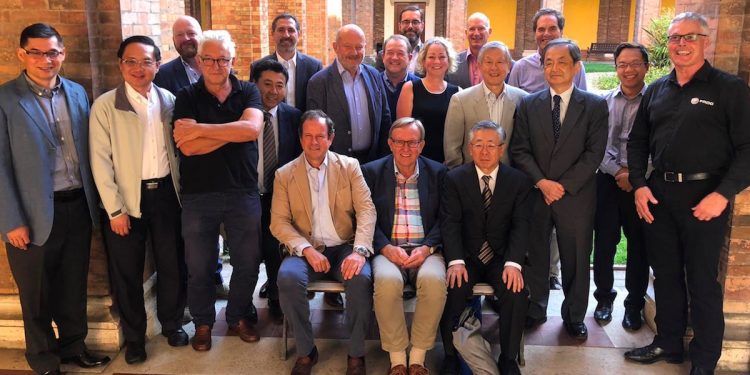Javier Garat has been re-elected president of ICFA (the International Coalition of Fishing Associations) at a meeting in Rome where the organisation’s delegates gathered to analyse internal and external factors affecting the worldwide fishing industry.
As well as serving as general secretary of Spanish industry body Cepesca, Javier Garat is also president of European industry organisation Europêche, which has been a part of ICFA since 2005.
The ICFA meeting examined fishing industry issues including the eco-labeling of marine products, management of Marine Protected Areas, IUU fishing, and the potential for applying blockchain technology to the traceability of marine products.
A further issue that this year’s meeting focused on is the negotiations over BBNJ (Biodiversity Beyond National Jurisdiction) and several ICFA members have stressed the importance of ensuring that this process does not nullify the efforts of the Regional Fisheries Management Organisations that the industry has defended as being the ideal instruments to manage highly migratory fish stocks.
Labour and social conditions in the fishing sector have also been scrutinised by ICFA members, who consider it fundamental that a worldwide social standard for fishing vessels that guarantees equal conditions should be developed.
The ratification of a number of nations of the ILO Convention 188 has been reviewed and delegates also addressed the current issue of the recruitment of seafarers and how to attract the younger generations to the industry.
ICFA has discussed collaboration with the Food and Agriculture Organization of the United Nations (FAO), the situation of deep-sea fishing activity in Areas Beyond National Jurisdiction (ABNJs), and the outcomes of the tenth eighth meeting (COP18) of the parties of CITES, which approved at its plenary session the inclusion of the inclusion of shortfin mako shark, with consequent increases in bureaucracy and costs for the fleets that fish for this species.
‘We are at a crucial juncture for continuing to advance the development of sustainable fishing practices compatible with meeting the requirements of Sustainable Development Goals (SDGs),’ Javier Garat said.
‘The current challenges require the co-operation of different fishing organisations and the co-ordination of international initiatives to continue advances in environmental sustainability, but also in social and economic terms, an objective that is one of ICFA’s reasons for being and to which we want to add the commitment of other fleets as part of a global vision of fisheries activity.’









